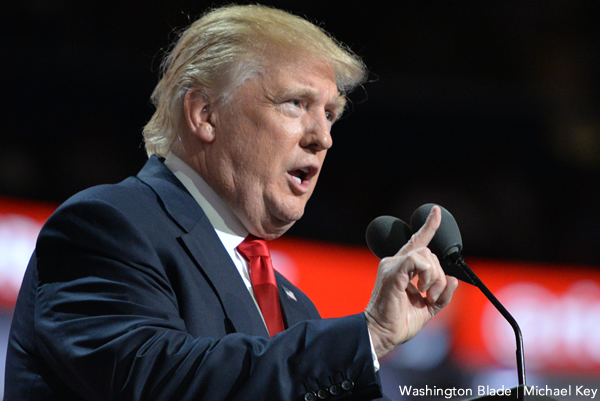a&e features
‘Trump Survival Guide’ author on what to do now
From energy, education, LGBT issues and more, new book is road map for progressives
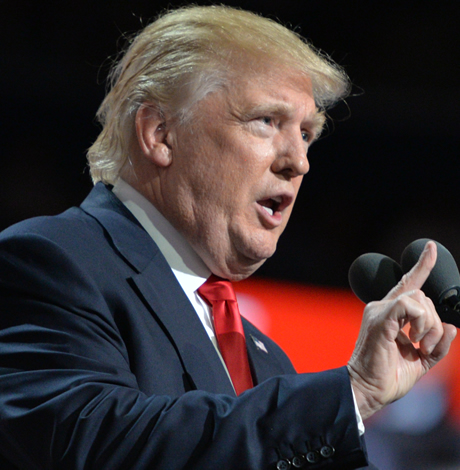
Feeling helpless in the impending Trump administration? Author Gene Stone is here to help with his new book “The Trump Survival Guide.”
The new book, out Jan. 10 from Dey Street Books (a HarperCollins imprint), is a trade paperback priced at $9.99 that’s subtitled “Everything You Need to Know About Living Through What You Hoped Would Never Happen.”
Bereft for about eight days after the Nov. 8 election, Stone, a New York Times bestselling author with 40 eclectic titles of several genres to his credit, says he couldn’t bear to watch or read the news. “Survival Guide” was written over the next 12 days (“I’ve had magazine deadlines that were much longer,” he says) with the help of seven co-writers.
Its chapters are devoted to topics like civil rights, the economy, education, energy, national security, LGBT issues and more. It’s billed as a “serious call to action for all anti-Trump dissenters across the political spectrum” that “succinctly analyzes crucial social and political policies, explains how Donald J. Trump has the power to undermine them and provides concrete practical solutions ordinary people can use to fight back.”
Stone spoke to the Blade by phone from his office in New York City. His comments have been slightly edited for length.
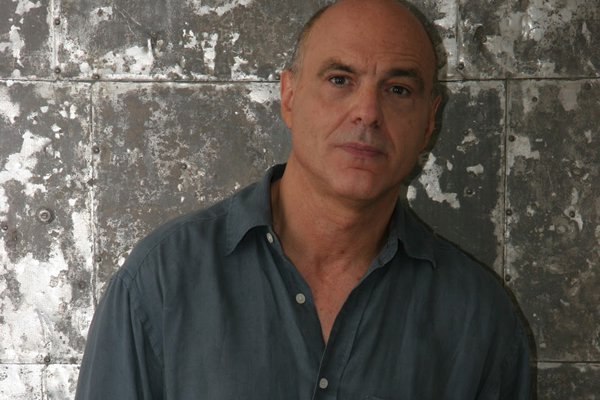
Author Gene Stone has written 12 books that have made the New York Times Bestseller list. Five hit No. 1. (Photo courtesy Dey Street Books)
WASHINGTON BLADE: How did you channel your election funk into this project so quickly?
GENE STONE: After about a week of feeling sorry for everything, I decided, you know — and this is the point of the book — it’s one thing to be depressed and mopey and God knows I have friends who are still crying, but you have to do something. Being depressed doesn’t get you anywhere. Being dejected and crying doesn’t solve anything. … Sitting around doing nothing accomplishes nothing. I thought, “Well, I have to do something.” I’m not the deepest thinker in the world, but I’m certainly one of the fastest and I realized I could do this. I knew that I could turn this book around in a short period of time. I have a pretty solid publishing history so I knew I had the credibility to get a book contract for something like this. They knew I was dependable, that I’d done it before and could do it again. All that meant that I should do the book, I could do the book so therefore I felt I had to do the book.
BLADE: How unusual is this tight of a turnaround time in the book publishing world?
STONE: There was a time years ago when instant books were much more common. Bantam Books was famous for being able to turn around books in a couple of weeks. … It has actually gotten much less common because the way those books were often sold was through the bookstores that would support the book, put it on their counters and make people aware of it that way, but as bookstores have less and less market share, it’s actually harder to get something like this out now. A book like this on a counter priced at $10 is a very appealing prospect that doesn’t quite have the same appeal on Amazon …. so it’s become less and less common.
BLADE: Obviously all the chapters were important to you but did the LGBT chapter have any special significance being gay yourself?
STONE: I can’t really say any were less important than the others but when it came time to do the book — I had some friends help me; I couldn’t do it all myself, so I hired a few friends to help write, research and fact check, etc. — but I needed right away to come up with a template for each chapter and the LGBT chapter was the one I wrote first myself the night I got the book contract staying up till God knows when in the morning in order to get the template done because frankly, it was a chapter I knew really well. … That established the pattern for the rest of the book.
BLADE: When you mention the agencies readers may want to support at the end of that chapter, you mention GLAAD, GLSEN, Lambda Legal and others but only sort of mention the Human Rights Campaign, the largest, under “and don’t forget …” Why?
STONE: (pauses) As you can tell, I have some issues there.
BLADE: You also wrote “The Bush Survival Bible.” Did his presidency end up being better or worse than you expected at the outset?
STONE: Well, they’re in fact much different books. The Bush book was actually kind of a funny book. A mix of satire and jokes and some serious advice, but in the guise of a funny book. When Bush won, I was also depressed, unhappy, I didn’t like it, but at least Bush was in the ballpark. I didn’t agree with it, but there was no sense that the world was going to be turned upside down. The Trump book is not a funny book, it’s a serious book because I do have a strong sense that there’s a possibility that the world could be turned upside down and there’s nothing funny about that.
BLADE: Are there any lessons we can glean from the Bush years as a sign of things to come or is it not analogous enough to justify that sort of thinking?
STONE: Well, again, even with that Republican administration, even though we disagreed with so many of their policies, it felt nonetheless that there was some kind of dialogue available between the right and the left …. but I’m not getting that feeling with the Trump administration. Obviously it hasn’t started yet, but in looking at his cabinet picks and watching his first press conference, I’m not getting the sense that things are going to seem as normal as they seemed during the Bush administration so it’s almost like you look back and think, “Gee, could it ever be worse?” and now you realize, “Oh man, it is worse. It’s much worse.” So I’m not sure the lessons we learned in the Bush years really apply because we’re dealing with an entirely new creature and I don’t think he is going to abide by the rules. Previously there’s been a norm in politics and civil discussion that both sides, with a bit of a stretch, have maintained. We’re not seeing that now and that’s one of the things that worries me most.
BLADE: Does Trump’s impulsiveness and reactionary personality lessen the value we would ordinarily perhaps glean from all the endless prognostication and tealeaf reading we see at the outset of any administration?
STONE: Two months ago, I probably would have said yeah, but now we have been seeing a fairly consistent pattern so I’m beginning to think the mixed signals from Trump are a thing of the past. What we’re seeing now is a pretty consistent formula of appealing to the alt right or right policies. We haven’t seen anything to the left or even the center so it’s been pretty consistent. It feels like the inconsistency of the past is melting into this kind of dreary consistency.
BLADE: Ideology aside, is that a good sign or do you still feel he could go off on some crazy limb at any point?
STONE: Yeah, the latter. Obviously we don’t know what’s going to happen till it happens, but all the signals so far have been pretty negative if not very negative.
BLADE: What do you think was the biggest factor in Hillary’s loss?
STONE: That’s something we always want to do in the media, and I’m as much to blame as anybody else, but we want to talk about the thing, the one thing, that made this happen but I would say it was really a combination of the Comey letter, perhaps faulty campaigning on her part, the country wanting change and any number of other factors. I really think it was the imperfect storm of factors and remember — she did win the popular vote. … It was very close. He’s also coming in with the lowest favorability ratings since polling began.
BLADE: By design, this book will have a short shelf life. Are you OK with that?
STONE: That’s just the nature of a book like this — nobody will be reading this in two years. I write a lot of books. I co-wrote a book on how not to die based on plant-based diets and it’s sort of an antidote to the major causes of death in America and I like to think that book will be around for many, many years to come. … I’d be very happy if all the sales of this book took place in the next six months. For the lessons here to be applied, people need to read the book now.
BLADE: There are a lot of things one could point to — eight years of Obama, the Obergefell ruling, the outcry from the Trayvon Martin case and so on, that made it feel like we’d really turned a corner on the straight, white, old boys’ club in politics then bam, in one fell swoop the old boys’ club came roaring back to win the White House and both chambers of Congress. Is it just that entrenched or something else?
STONE: It does speak to entrenchment yes, but it also points to another factor that’s been prevalent in American politics since the beginning, its back and forth nature. Carter to Reagan, Bush to Clinton, Clinton to Bush, Bush to Obama — it’s been a lot of back and forth. And also the fact that they barely made it in this time makes me hopeful. I mean here we had a centrist, liberal woman running with very, very negative favorability ratings and yet she came really close to winning. I also like to think that unless the damage Trump does to our democracy is really overwhelming, that the pendulum will eventually swing back again.
BLADE: Did progressives get too complacent? If this shakes us from our complacency, is that the silver lining?
STONE: I agree with that. I think liberals have a tendency to think that we’re right. We know what’s right, we’re kind and decent and empowering. That’s the way humans are supposed to be but unfortunately, that’s not the way all humans are. We did get very complacent having a terrific president for eight years and this is going to shock us out of our complacency and hopefully make us work in a way we saw the Tea Party work. As much as I don’t agree with anything they stood for, I admire the way they got their objectives into the policies of America and we need to do the same. If my book is really about anything, it’s about fighting back and finding ways to take on the Trump administration, not by waiting four years to vote against it, but by turning every day of your life into some kind of act of resistance. If there’s anything that’s going to make me happy, and I’ve heard it a few times already, it will be to hear people say, “I read your book and I joined an organization or I donated money or now I’m going to go march in the women’s protest. The point of the book is to try to get people to move.
BLADE: But how much can really be accomplished in this environment. How was the Tea Party able to become such a force while, say, the Occupy movement seemed like it had difficulty sustaining itself or harnessing that energy into something with any measurable impact? Is the right just better at mobilizing than the left? How can you be effective when you’re not the group in power at any given moment?
STONE: Well, I think one of the things that motivated the Tea party is that it didn’t have a titular head. You couldn’t say so-and-so ran everything because it was such a grass roots thing taking place in so many parts of the country. We need to learn from that. You don’t need a powerful leader. You don’t need a spokesperson. Every one of us can be a spokesperson just as everybody in the Tea Party felt they could go to the media and say whatever they wanted, we can do the same. … I also think politics tend to trickle up from the local level and we just don’t seem to get that. We get all excited about presidents and senators but it starts with local representatives and school boards. We just don’t seem to organize on the local level the way the Tea Party can do.

(Image courtesy Dey Street Books)
a&e features
Queer highlights of the 2026 Critics Choice Awards: Aunt Gladys, that ‘Heated Rivalry’ shoutout and more
Amy Madigan’s win in the supporting actress category puts her in serious contention to win the Oscar for ‘Weapons’
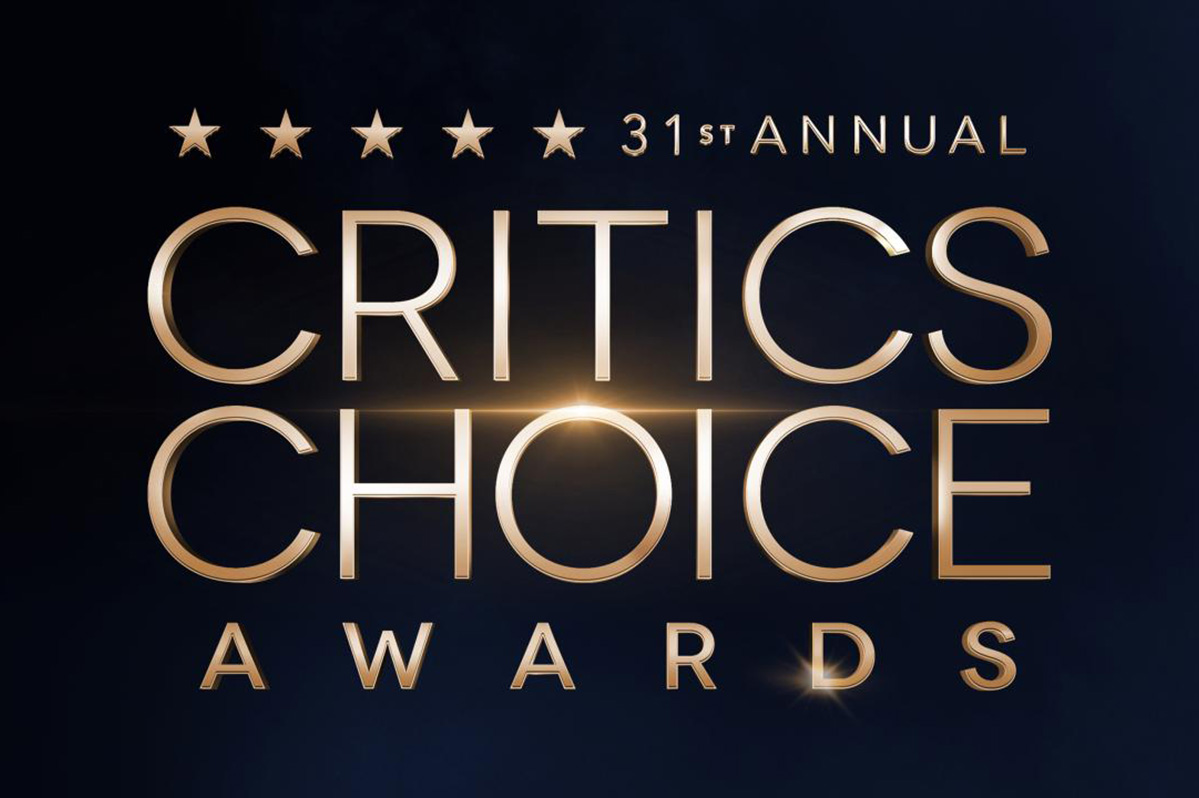
From Chelsea Handler shouting out Heated Rivalry in her opening monologue to Amy Madigan proving that horror performances can (and should) be taken seriously, the Critics Choice Awards provided plenty of iconic moments for queer movie fans to celebrate on the long road to Oscar night.
Handler kicked off the ceremony by recapping the biggest moments in pop culture last year, from Wicked: For Good to Sinners. She also made room to joke about the surprise hit TV sensation on everyone’s minds: “Shoutout to Heated Rivalry. Everyone loves it! Gay men love it, women love it, straight men who say they aren’t gay but work out at Equinox love it!”
The back-to-back wins for Jacob Elordi in Frankenstein and Amy Madigan in Weapons are notable, given the horror bias that awards voters typically have. Aunt Gladys instantly became a pop culture phenomenon within the LGBTQ+ community when Zach Cregger’s hit horror comedy released in August, but the thought that Madigan could be a serious awards contender for such a fun, out-there performance seemed improbable to most months ago. Now, considering the sheer amount of critics’ attention she’s received over the past month, there’s no denying she’s in the running for the Oscar.
“I really wasn’t expecting all of this because I thought people would like the movie, and I thought people would dig Gladys, but you love Gladys! I mean, it’s crazy,” Madigan said during her acceptance speech. “I get [sent] makeup tutorials and paintings. I even got one weird thing about how she’s a sex icon also, which I didn’t go too deep into that one.”
Over on the TV side, Rhea Seehorn won in the incredibly competitive best actress in a drama series category for her acclaimed performance as Carol in Pluribus, beating out the likes of Emmy winner Britt Lower for Severance, Carrie Coon for The White Lotus, and Bella Ramsey for The Last of Us. Pluribus, which was created by Breaking Bad’s showrunner Vince Gilligan, has been celebrated by audiences for its rich exploration of queer trauma and conversion therapy.
Jean Smart was Hack’s only win of the night, as Hannah Einbinder couldn’t repeat her Emmy victory in the supporting actress in a comedy series category against Janelle James, who nabbed a trophy for Abbott Elementary. Hacks lost the best comedy series award to The Studio, as it did at the Emmys in September. And in the limited series category, Erin Doherty repeated her Emmy success in supporting actress, joining in yet another Adolescence awards sweep.
As Oscar fans speculate on what these Critics Choice wins mean for future ceremonies, we have next week’s Golden Globes ceremony to look forward to on Jan. 11.
a&e features
Looking back at the 10 biggest A&E stories of 2025
‘Wicked,’ Lady Gaga’s new era, ‘Sexy’ Bailey and more
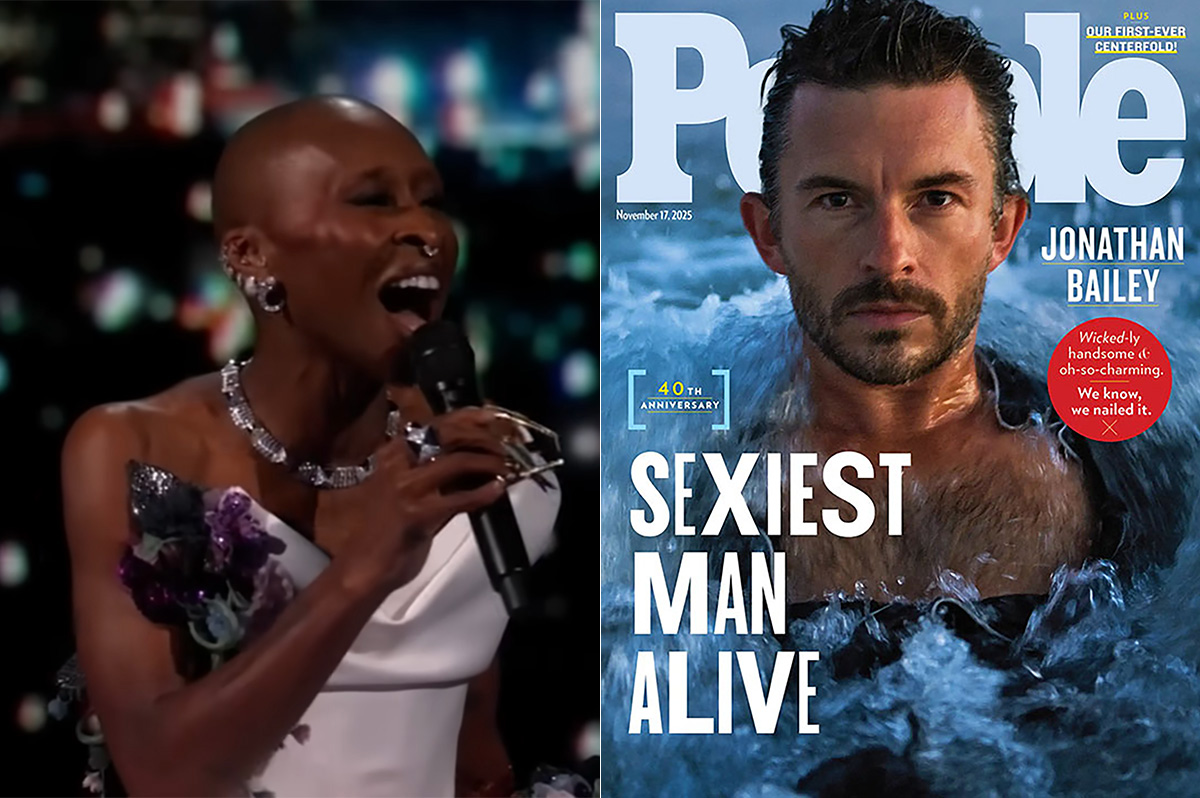
Although 2025 was a year marked by countless attacks on trans rights and political setbacks, the year also saw brilliant queer artists continuing to create art. From Cannes and Sundance Award winners now vying for Oscar consideration to pop icons entering new stages of their careers, queer people persevered to tell their stories through different media.
With the state of the world so uncertain, perhaps there’s no more vital time to celebrate our wins, as seen through some of this year’s top pop culture moments. While there’s no collection of 10 stories that fully encompass “the most important” news, here are some events that got the gays going:
10. ‘Mysterious Gaze of the Flamingo’ wins big at Cannes
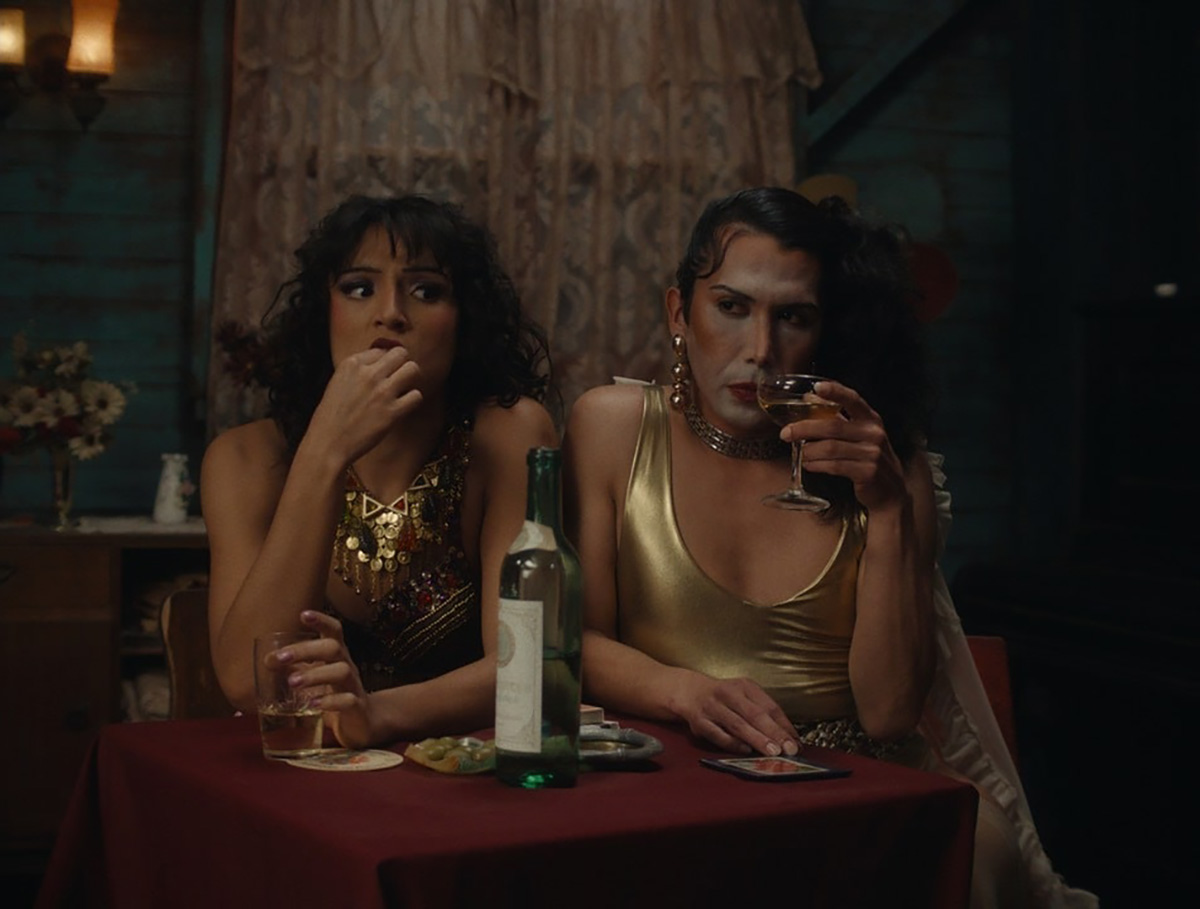
The Cannes Film Festival has become a crucial start for films hoping to make their way to the Oscars, and first-time director Diego Céspedes won the top Un Certain Regard prize for his intimate western “The Mysterious Gaze of the Flamingo.” The film is set in the ‘80s and is intended as an allegory for the AIDS epidemic. Seeing a film that unpacks vital queer history win one of the most coveted awards at Cannes has been a huge point of pride in the independent filmmaking community.
Since the film bowed at Cannes, it has been selected as Chile’s Oscar entry in the Best International Feature race. Speaking with The Blade during the film’s AFI Fest run in October, Céspedes said: At first, I was kind of scared to have this campaign position in the times that we’re living [in] here. But at the same time, I think the Oscars mean a huge platform — a huge platform for art and politics.”
9. ‘The Last of Us’ returns for an even gayer season 2
While the first season of The Last of Us gave us one of TV’s most heartbreaking queer love stories in the episode “Long, Long Time,” Season 2 doubled down on its commitment to queer storytelling with the blossoming relationship between Ellie (Bella Ramsey) and Dina (Isabela Merced). The show expanded on the pair’s relationship in the original video game, making it perhaps the central dynamic to the entire season. That unfortunately came with more homophobic backlash on the internet, but those who checked out all the episodes saw a tender relationship form amid the show’s post-apocalyptic, often violent backdrop. For their performance, Ramsey was once again nominated for an Emmy, but Merced deserved just as much awards attention.
8. ‘Emilia Pérez’ sparks controversy
Jacques Audiard’s genre-bending trans musical “Emilia Pérez” proved to be an awards season juggernaut this time last year, winning the Golden Globe for Best Musical/Comedy. But when the lead star Karla Sofia Gascón’s racist, sexist, and homophobic old tweets resurfaced, the film’s Oscar campaign became a tough sell, especially after Netflix had tried so hard to sell Emilia Pérez as the “progressive” film to vote for. Mind you, the film had already received significant backlash from LGBTQ+ audiences and the Mexican community for its stereotypical and reductive portrayals, but the Gascón controversy made what was originally just social media backlash impossible to ignore. The only person who seemed to come out of the whole debacle unscathed was Zoe Saldaña, who won the Oscar for Best Supporting Actress over Ariana Grande.
7. ‘Sorry, Baby’ establishes Eva Victor as major talent
Back in January at the Sundance Film Festival, Eva Victor (known by many for her brand of sketch comedy) premiered their directorial debut “Sorry, Baby” to rave reviews, even winning the Waldo Salt Screening Award. Victor shadowed Jane Schoenbrun on the set of “I Saw the TV Glow,” and seeing Victor come into their own and establish such a strong voice immediately made them one of independent cinema’s most exciting new voices. A memorable scene in the film sees the main character, Agnes (played by Victor), struggling to check a box for male or female, just one example of how naturally queerness is woven into the fabric of the story.
Most recently, Victor was nominated for a Golden Globe for her performance in the film, and she’s represented in a category alongside Jennifer Lawrence (“Die My Love”), Jessie Buckley (“Hamnet”), Julia Roberts (“After the Hunt”), Renate Reinsve (“Sentimental Value”) and Tessa Thompson (“Hedda”). The film also received four Independent Spirit Award nominations overall.
6. Paul Reubens comes out in posthumous doc
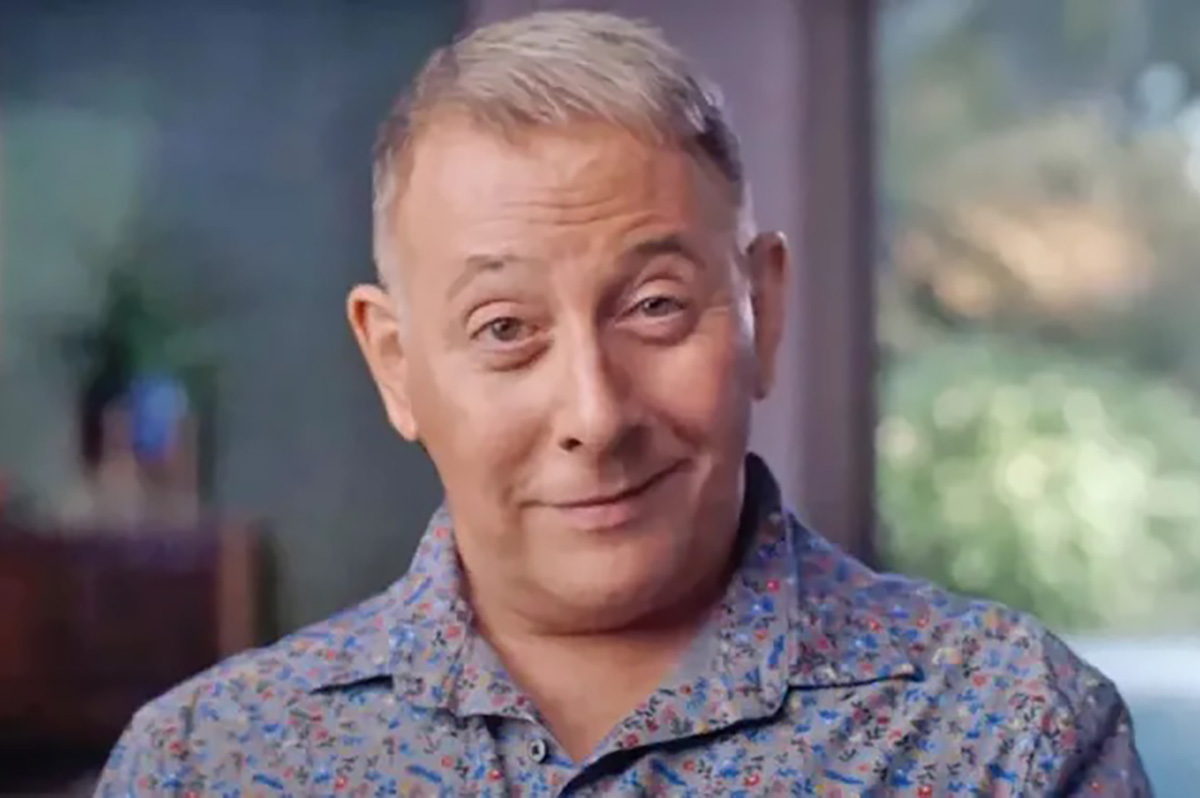
While Paul Reubens never publicly came out as gay before passing away in 2023, the two-part documentary “Pee-wee as Himself” premiered back in May on HBO Max, giving the legendary comedian a chance to posthumously open up to the world. Directed by Matt Wolf, the documentary explores how Reubens found his alter ego Pee-Wee Herman and why he kept his private life private.
The documentary won an Emmy in the Outstanding Documentary or Nonfiction Special category and remains one of the most critically acclaimed titles of the year with a 100% Rotten Tomatoes score. Also worth noting, the National Geographic documentary Sally told the posthumous coming out story of Sally Ride through the help of her long-time partner, Tam O’Shaughnessy.
5. Lady Gaga releases ‘Mayhem’
Lady Gaga entered a new phase of her musical career with the release of Mayhem, her seventh album to date. From the frenzy-inducing pop hit Abracadabra to the memorable Bruno Mars duet featured on “Die With a Smile,” seeing Gaga return to her roots and make an album for the most die-hard of fans was especially rewarding after the underwhelming film releases of “House of Gucci” and “Joker: Folie à Deux.” Gaga has been touring with The Mayhem Ball since July, her first arena tour since 2018. She even extended her tour into 2026 with more North American dates, so the party isn’t stopping anytime soon. And Gaga is even set to make an appearance next May in “The Devil Wears Prada 2.”
4. Cynthia Erivo, Ariana Grande perform at the Oscars
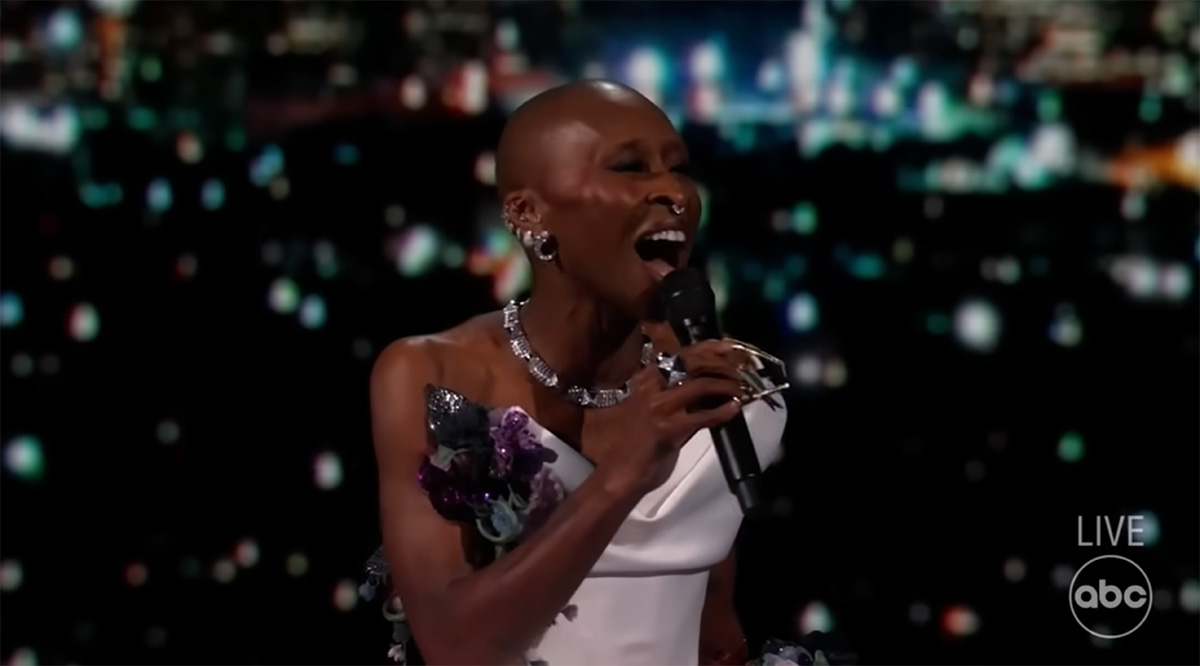
While “Wicked: For Good” didn’t quite reach the heights of the first film, we will forever have Cynthia Erivo and Ariana Grande’s breathtaking live performance that opened the 97th Academy Awards. The pair sang a rendition of “Over the Rainbow,” “Home,” and “Defying Gravity,” paying proper homage to the original 1939 “Wizard of Oz.” Even non-Wicked fans can’t deny how magical and brilliantly staged this performance was. With both Erivo and Grande up for acting Oscars last year, they’re hoping to repeat success and make history with consecutive nominations. Either way, let’s hope there’s another live performance in the making, especially with two new original songs (The Girl in the Bubble and No Place Like Home) in the mix.
3. Indya Moore speaks out against Ryan Murphy
Indya Moore has consistently used social media as a platform for activism, and in September, posted a 30-minute Instagram live speaking out against “Pose” co-creator Ryan Murphy. Moore claimed that Murphy wasn’t being a true activist for trans people. “Ryan Murphy, we need you to do more. You need to address the racism, the violence, and the targeting of people on your productions, Ryan Murphy. You do need to make sure trans people are paid equally. Yes, Janet did the right thing,” Moore said. Murphy was also back in the headlines this year for the critically panned “All’s Fair” and the controversial “Monster: The Ed Gein Story” starring Laurie Metcalf and Charlie Hunnam.
2. Cole Escola wins Tony for Best Leading Actor
Few pop culture moments this year brought us together more than Cole Escola winning a Tony award for “Oh, Mary!” the Broadway show they created, wrote and starred in (we love a triple threat!) Escola made history by becoming the first nonbinary person to win a Tony in the leading actor category, and seeing them excitedly rush to the stage wearing a Bernadette Peters-inspired gown instantly became a viral social media moment.
The cherry on top of Escola’s major moment is the recent news that they are writing a Miss Piggy movie with Jennifer Lawrence and Emma Stone producing — news that also broke the internet for the better. We cannot wait!
1. Jonathan Bailey makes gay history as ‘Sexiest Man Alive’

The same year as his on-screen roles in blockbusters “Jurassic World Rebirth” and “Wicked: For Good,” Jonathan Bailey made history as the first openly gay man to be named People magazine’s “Sexiest Man Alive.” The fact that it took 40 years for an openly gay man to earn the title is a signifier of how far we still have to go with queer representation, and seeing Bailey celebrated is just one small step in the right direction.
“There’s so many people that want to do brilliant stuff who feel like they can’t,” he told PEOPLE, “and I know the LGBT sector is under immense threat at the moment. So it’s been amazing to meet people who have the expertise and see potential that I could have only dreamed of.” In 2024, Bailey founded the charity titled The Shameless Fund, which raises money for LGBTQ+ organizations.
a&e features
Your guide to D.C.’s queer New Year’s Eve parties
Ring in 2026 with drag, leather, Champagne, and more
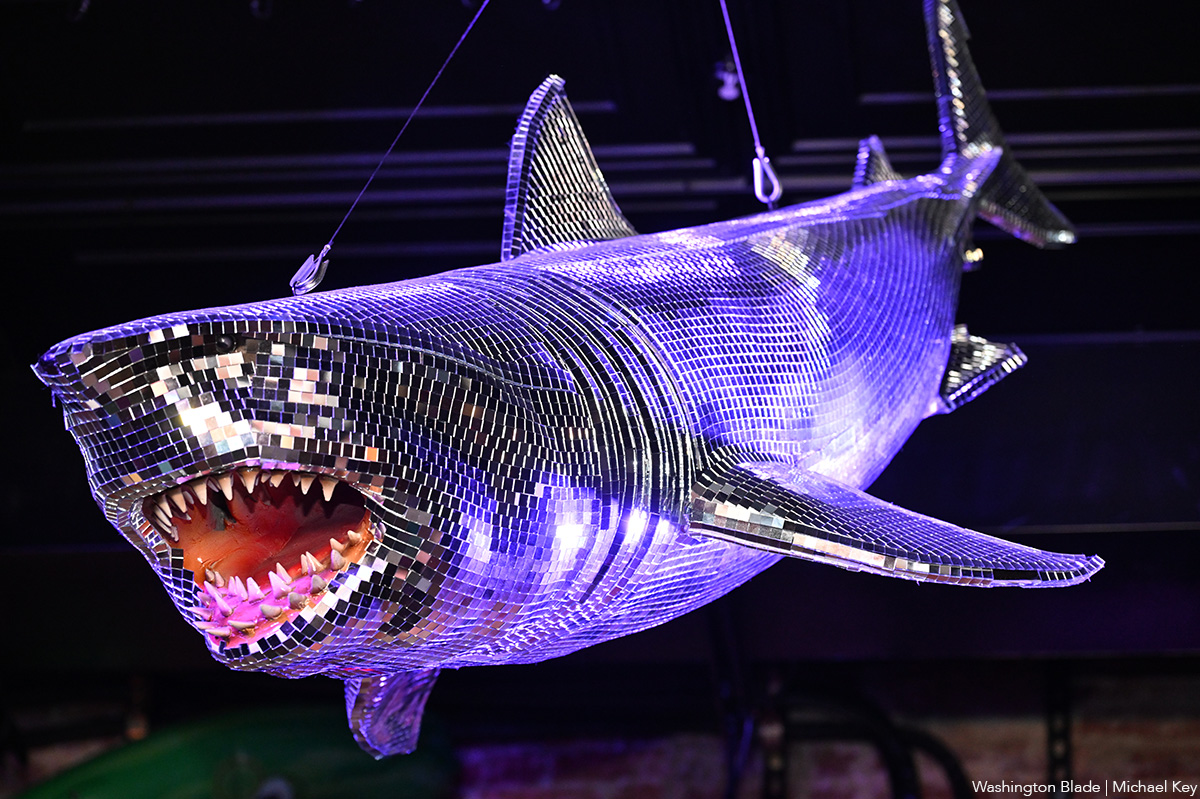
With Christmas in the rear view mirror, we can turn our attention to ringing in a much-anticipated New Year with a slew of local LGBTQ parties. Here’s what’s on tap.
Pitchers
This spacious Adams Morgan bar is hosting the “Pitchers’ Perfect New Year’s Eve.” There will be a midnight Champagne toast, the ball drop on the big screens, and no cover, all night long. The bar doesn’t close until 4 a.m., and the kitchen will be open late (though not until close). All five floors will be open for the party, and party favors are promised.
Trade
D.C.’s hottest bar/club combo is leaning into the Shark motif with its NYE party, “Feeding Frenzy.” The party is a “glitterati-infused Naughty-cal New Year’s Even in the Shark Tank, where the boats are churning and the sharks are circling.” Trade also boasts no cover charge, with doors opening at 5 p.m. and the aforementioned Shark Tank opening at 9 p.m.. Four DJs will be spread across the two spaces; midnight hostess is played by Vagenesis and the two sea sirens sensuously calling are Anathema and Justin Williams.
Number Nine
While Trade will have two DJs as part of one party, Number Nine will host two separate parties, one on each floor. The first floor is classic Number Nine, a more casual-style event with the countdown on TVs and a Champagne midnight toast. There will be no cover and doors open at 5 p.m. Upstairs will be hosted by Capital Sapphics for its second annual NYE gathering. Tickets (about $50) include a midnight Champagne toast, curated drink menu, sapphic DJ set by Rijak, and tarot readings by Yooji.
Crush
Crush will kick off NYE with a free drag bingo at 8 p.m. for the early birds. Post-bingo, there will be a cover for the rest of the evening, featuring two DJs. The cover ($20 limited pre-sale that includes line skip until 11 p.m.; $25 at the door after 9 p.m.) includes one free N/A or Crush, a Champagne toast, and party favors (“the legal kind”). More details on Eventbrite.
Bunker
This subterranean lair is hosting a NYE party entitled “Frosted & Fur: Aspen After Dark New Year’s Eve Celebration.” Arriety from Rupaul Season 15 is set to host, with International DJ Alex Lo. Doors open at 9 p.m. and close at 3 p.m.; there is a midnight Champagne toast. Cover is $25, plus an optional $99 all-you-can-drink package.
District Eagle
This leather-focused bar is hosting “Bulge” for its NYE party. Each District Eagle floor will have its own music and vibe. Doors run from 7 p.m.-3 a.m. and cover is $15. There will be a Champagne toast at midnight, as well as drink specials during the event.
Kiki, Shakiki
Kiki and its new sister bar program Shakiki (in the old Shakers space) will have the same type of party on New Year’s Eve. Both bars open their doors at 5 p.m. and stay open until closing time. Both will offer a Champagne toast at midnight. At Kiki, DJ Vodkatrina will play; at Shakiki, it’ll be DJ Alex Love. Kiki keeps the party going on New Year’s Day, opening at 2 p.m., to celebrate Kiki’s fourth anniversary. There will be a drag show at 6 p.m. and an early 2000s dance party 4-8 p.m.
Spark
This bar and its new menu of alcoholic and twin N/A drinks will host a NYE party with music by DJ Emerald Fox. Given this menu, there will be a complimentary toast at midnight, guests can choose either sparkling wine with or without alcohol. No cover, but Spark is also offering optional wristbands at the door for $35 open bar 11 p.m.-1 a.m. (mid-shelf liquor & all NA drinks).

